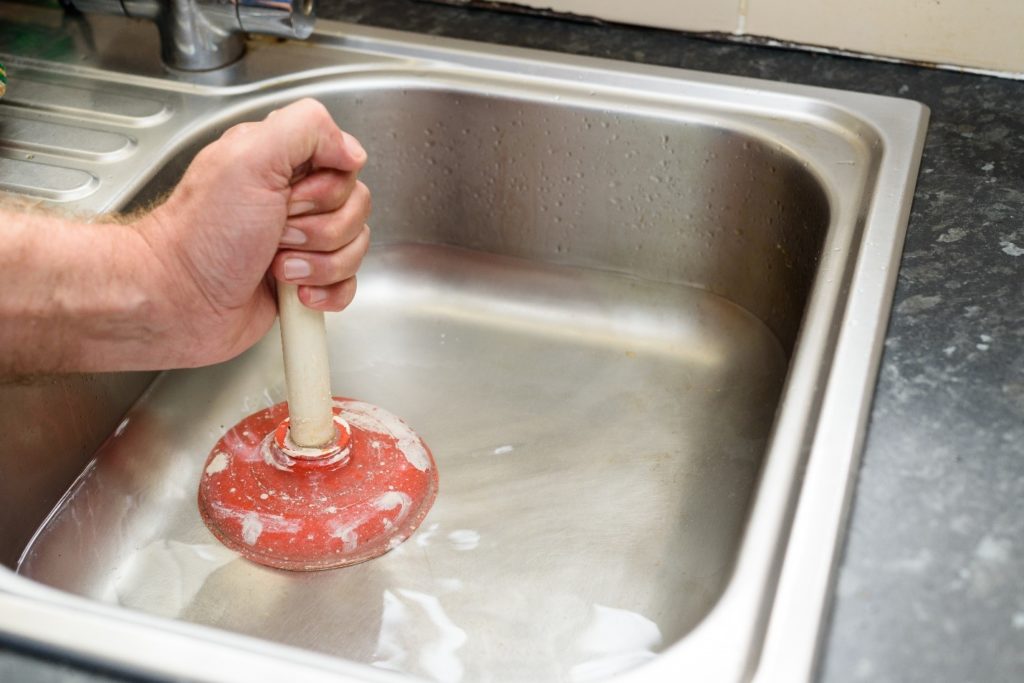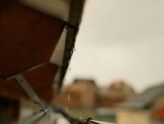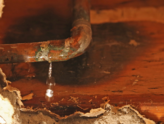From odd gurgling sounds in the plughole to frequently having to get the plunger out, a blocked drain can be a true menace on your property. On a lot of these occasions, it can hard to tell what the cause is behind a clogged drain without knowing the common culprits.
In today’s post, Caldwell Plumbing is helping homeowners understand several likely reasons why their drains are blocked, and more importantly, what they can do to fix it.
#1: Hard Water
When you think about why a drain might be blocked, you might not think of the water it actually carries. Common among southern Ontario, hard water can be extremely vigorous on plumbing systems. Hard water is water with a strong concentration of minerals, such as calcium and magnesium, which often enter into the water supply through the ground. Thankfully, hard water does not harm your health, and in fact helps supply your body with the right minerals.
The bad news is that the minerals in the hard water often build up easily over time in your pipes, appliances, and plumbing installations. This build-up can cause scaling in your pipes, resulting into slow drainage or even a complete blockage.
To fix a drain blocked by hard water and mineral deposits, you should call a plumber to descale your pipes. This will remove the deposits and get things flowing again with ease! Hard water can be prevented from building-up by having a water softener installed on your property, preferably by a plumber.
#2: Tree Roots
Another unusual suspect for blocked drains are tree roots. It might not be the first thing you think about when moving into a new home, but trees can cause plumbing problems. Though scenic and beautiful in many backyards and gardens, their roots can intercept underground pipes on your property. The following trees are known for causing pipe damage:
• Willow Trees
• Maple Trees
• Birch Trees
• Aspen Trees
• Oak Trees
Fixing pipes blocked by tree roots needs professional support, especially if they need to excavate the area where the roots are blocking your pipe. Consult your plumber to work out a strategy to fix this issue.
To prevent this issue from returning, aim to get your tree roots inspected on a regular basis. Alternatively, if you are looking to plant trees in your garden that will not harm your pluming, the following are recommended:
• Magnolia Trees
• Fruit Trees
• Cedar Trees
• Cypress Trees
#3: Food
Though many of us scrape our plates in the garbage before washing them, sometimes food particles still manage to get in our kitchen sinks and drains. Some liquids such as grease and fats can also build-up quickly, as they known to thicken when cooling.
Luckily, many food blockages can be unclogged using standard cupboard items. By combining vinegar with some baking soda, which strips the pipes of fats and oils causing blockages. Stronger drain unblocking liquids are available in grocery and home and hardware stores.
If you are dealing with a larger blockage however, you may have to call a plumber out to inspect it. Your plumber will have the equipment to safely unblock your drain and clear your kitchen pipes out properly without causing any damage.
To avoid this from reoccurring, install drain filters in your sinks that can collect food particles before they flow down the plughole. If you are cooking and have leftover fats and oils from foods such as meat, let it sit and thicken in tub before tossing into the garbage rather than letting it flow down the drain.
#4: Feminine Hygiene Products
Products such as sanitary pads, tampons and even cotton swabs are known for causing blockages in toilets both at home and in public washrooms. Unlike toilet paper, tampons in particular are very hardy and can expand significantly, causing a blockage further down your pipes, which can actually affect your neighbours plumbing with time. Other hygiene products that should not be passed down toilet drains include:
• Baby wipes
• Dental floss
• Condoms
• Diapers
• Cotton balls
A quick plunge can help shift the water along and unclog a blocked toilet. Unfortunately, if plunging does not work, you should call a plumber to fix the issue.
Always dispose of feminine hygiene products in a bathroom bin rather than the toilet. This can help keep your bathroom pipes lasting much longer than if they are clogged, where they are susceptible to further damage.
#5: Toilet Paper
Unlike many other hygiene products, toilet paper can easily dissolve in water. Made deliberately to be gentle on plumbing systems rarely cause a problem when used in moderation.
However, if you accidentally use too much toilet paper, it can form a ball or bundle that can quickly overpower your toilet and cause a blockage. Additionally, toilet paper with added layers which does not dissolve as fast, such as quilted toilet paper, can be notorious for clogging up a toilet.
To remove toilet paper from your toilet drain, first start by attempting to plunge the clog out with a plunger. If that is unsuccessful, apply a drain cleaner to dissolve the clog. In the majority of cases, this should work.
If you are still experiencing a clogged toilet, contact your nearest plumber so that they can professionally unblock the toilet drain and get things flowing again with ease.
Unblock Your Drains with a Plumber
If you suspect your drains are blocked due to another reason not listed in this article, it might be wise to contact a plumber. At Caldwell Plumbing, our team of expert plumbers proudly serve the Durham Region and the Greater Toronto Areas for all their plumbing needs. Using our experience and latest plumbing technology, we can quickly identify the causes behind blocked drains and find a longer-lasting solution to fix them.
Get in touch with us today by calling us or filling out an estimate form. Whatever the plumbing problem, we are here to help!

















